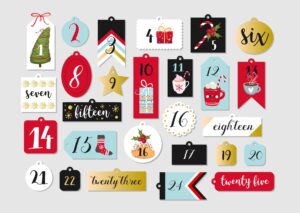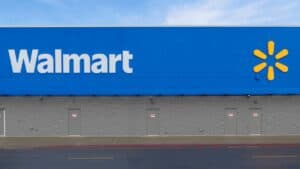
Photo: Getty Images
June 18, 2018
Is Amazon killing Barnes & Noble’s chances for a turnaround?
Knowledge@Wharton staff
Presented here for discussion is a section of a current article published with permission from Knowledge@Wharton, the online research and business analysis journal of the Wharton School of the University of Pennsylvania.
While a recent New York Times op-ed argued that lax government policy toward giant corporations has allowed Amazon to take over the book business and made it impossible for Barnes & Noble to compete, experts from Wharton and elsewhere say there are other trends at play.
“It would be really easy to say it is Amazon that drove Barnes & Noble out of business,” said Wharton marketing professor Peter Fader. “I don’t think that’s true. I think it’s Barnes & Noble that [will drive] itself out of business by not adapting to the times and moving with its customers.”
He pointed out that Best Buy, the retail electronics chain, has been able to survive and thrive in the face of competition from Amazon with smart strategies.
Barnes & Noble has also been unable to cash in on a revival in the fortunes of physical bookstores and yielded ground to smaller local shops.
“There is a tremendous resurgence of local bookstores that’s underway, but these have relevance because they’re coming up out of the ground as green shoots in the communities in which they are appearing and they’re not trying to be all things to all people as Barnes & Noble has always tried to be,” said Mark Cohen, director of retail studies at the Columbia University Graduate School of Business. “
According to Ray Wimer, retail practice professor at Syracuse University’s Martin J. Whitman School of Management, customers want a personalized experience and Barnes & Noble’s staff typically isn’t able to make personalized recommendations and have conversations with book lovers. He said, “Barnes & Noble is not that kind of unique experience anymore, giving people the ‘reason why’ to go in and shop, other than [a salesperson] taking you to the book that you’re looking for. There’s really no discussion.”
Wharton marketing professor Barbara Kahn noted that Barnes & Noble’s big bookstores don’t translate into an intimate or cozy customer experience like many independents and Amazon’s book stores offer. But she also feels the convenience, lower pricing and larger assortments offered on Amazon.com is hard for Barnes & Noble to overcome. Said Ms. Kahn, “The problem is they’re stuck in the middle.”
Discussion Questions
DISCUSSION QUESTIONS: Would you attribute the majority of Barnes & Noble’s struggles to the arrival of Amazon.com? How should have Barnes & Noble repositioned itself in hindsight and what can the retailer still do?
Poll
BrainTrust
Joel Rubinson
President, Rubinson Partners, Inc.
Recent Discussions







The average Barnes & Noble store is a hodgepodge of product with
seemingly little coordination and thought given to ranging. As much as it is sensible to stock things like toys and games, there are lots of other places that sell these items – often at lower prices.
Barnes & Noble has tried to stimulate footfall into stores with the use of cafes and places to relax. However these are lackluster and, in some stores, the
environment is not enticing. In essence, the company needs to up its
game if it is to pull in shoppers.
This includes reallocating floorspace from categories like CDs — where dedicating space to things like Doris Day albums is both unnecessary and unproductive — to functions that are more aligned with what consumers want.
In short, Barnes & Noble needs to refine its offer and work harder to create differentiation.
I 100 percent agree with your assessment on their cafes. Cramming a Starbucks into a corner with awkward seating arrangements and hoping it solves the rest of the outdated problems is not the answer. However I do think continuing to diversify their product offerings would be smart. Personally, the last trips into a Barnes & Noble I can remember were for children’s gifts and records.
In my opinion they house too many genres/books. Without seeing their numbers I would assume a significant portion of their sales come from new releases, mainstay series and displays. They should focus resources on keeping those sections updated and engaging. If someone comes in that wants a specific book that isn’t in stock, a Barnes & Noble employee should be able to order said book to be delivered directly to the customer’s house on the spot.
There’s no question that, as the major book retailer, Barnes & Noble was at the tip of Amazon’s disruption. However, I agree with the arguments in the article that Barnes & Noble’s struggles are not all a result of Amazon. I think that inertia and denial on the part of Barnes & Noble leadership is a big reason for why they are in the difficult spot they are in today. Change is difficult and this is especially true in large enterprises that were once the leaders, like Barnes & Noble was. Not only did they not respond to the initial Amazon threat by focusing on the strengths of their physical stores, but like a frog that boils slowly until it’s too late, the initiatives that they did undertake were ineffectual.
Browse versus buy marks a line of distinction for many consumers and Amazon is just too easy to buy from. When availability and good pricing are added, Amazon becomes a first choice. There will most certainly be a place for for the physical retail browsing/buying of books in the future, in particular in specialty categories such as rare books and children’s books, and of course convenience buying at airports, etc. Barnes & Noble has a tough row to hoe, having lost that privileged point of preferred purchase in consumer minds.
The majority of Barnes & Noble’s struggles are self-created and began about 20 years ago when they failed to fully embrace the changing customer. They were slow to respond to online selling in the beginning. Their Nook was a late and half-hearted attempt at digital books.
If you look at the history of the online bookselling channel, both Barnes & Noble and Borders allowed Amazon to flourish. Neither company took online and digital books seriously until it was too late.
Additionally, Barnes & Noble has run the same brick-and-mortar model without changing or adapting. In order for Barnes & Noble to survive, they need to figure out the unmet needs of the book buying consumer and carve out a sustainable niche online and in physical stores. Unfortunately, they may be out of time.
Why couldn’t Barnes & Noble pare down their footprints and appeal to locals in communities? The people they hire are local, but just don’t seem to have passion or a point-of-view. I agree they’re sort of stuck in the middle of a bifurcating retail segment, but the chain seems to be content with little or no change. Perhaps it is time for some cultural innovation?
Unfortunately for Barnes & Noble, the once dominant figure in and conqueror of the book segment, the company lost its way. This was partly due to the Amazon impact, but more importantly due to the fact that their stores just aren’t compelling destinations any longer. The assortments are too deep and the big box bookstore model simply doesn’t resonate with the experiential and digital-first customer.
For Barnes & Noble to survive and thrive in the new retail paradigm, they should focus on their internal strategies rather than seeking to compete with Amazon on assortments, pricing and promotions. This is clearly a losing battle.
The three Cs are critical for Barnes & Noble to get right as they shift and evolve. They need to focus on the local “communities,” “curate” their assortments (as less is more) and “create” experiences that will drive their customers back for more. Customers still crave in-store experiences, and this is not going away any time soon.
Almost every big box retail segment has leaders that are testing new, smaller format footprints and some are doing it very successfully. There’s no reason that Barnes & Noble shouldn’t be trying this to determine markets where they can add to their footprint with a more appealing format. Amazon has forced many segments to rethink their models and management that is slow to move or unwilling to test and learn will follow the Borders and Circuit Citys of the world.
Peter Fader’s comment is spot on: “I don’t think that’s true. I think it’s Barnes & Noble that [will drive] itself out of business by not adapting to the times and moving with its customers.” There are plenty of major retailers who adapted to their big-box store and online competition. Take a page from the Ace Hardware playbook. They are the David in the David and Goliath story. Barnes & Noble has the advantage of being a big chain, but it has to play local a little better. Some of the local bookstores are thriving today — even with Amazon looming over them. Barnes & Noble is in the middle, between Amazon and the local stores. Barnes & Noble would do well to localize their stores and become more of a part of the communities they serve, not just another large retailer. I’m a big fan of theirs, so I hope they do what’s necessary to not just survive, but thrive in the competitive retail world.
It’s always easier to look in the rear view mirror for answers. In the case of Barnes & Noble and Amazon I suspect the truth, as with most things, lies somewhere in the middle. Barnes & Noble simply didn’t respond to the facts before them while Amazon just pressed forward with their online barrage. Far too many traditional brick-and-mortar retailers chose not listen to the news of what they are now all experiencing. To blame Amazon is diverting responsibility and is simply too easy. Those executives that blame Amazon are still cashing their enormous bonus checks and cashing in their stock equity. The retail world in which we are now living should not be a surprise. There were some of us who were helping our clients prepare for today — some listened, many did not. In the end, it’s shoppers that drive expectations and change. A technology superpower like Amazon simply enables service and acceptance.
While it’s a great place to buy books you already know about, Amazon’s weakness is that it’s a terrible place to browse for books you might enjoy reading. That’s why independents are experiencing a resurgence. They’re great places to browse — to be surprised by finding something new and interesting.
Barnes & Noble has not created a good place to browse books. And the books on their shelves are either exactly what Amazon recommendations show me (yawn) or cheap books (as opposed to good books).
My term for Amazon bookstores is “Barnes & Amazon” — which reflects the blandness of both brands.
Well said. Brick-and-mortar will always present an opportunity for differentiation and experience; a reason to leave the couch rather than stay on the couch. As always, it becomes about the HOW. It used to be that being just a book store was enough. It used to be that just being a golf driving range was enough. A quick look at the evolution of golf driving ranges provides a good lesson.
It’s more than Amazon. Barnes & Noble stores are too big, and the sales floors are cluttered with toys and other non-book related items that seem only to serve as space fillers. The in-store experience doesn’t come close to the intimate settings found at indie book shops.
It’s time to toss the sales floor; Barnes & Noble stores are definitely in need of a new look and a smaller footprint. Keep the things that work, like its weekly story times and standing room only Harry Potter events.
It’s unfair say that all Barnes & Noble store associates are not knowledgeable. I spend a lot of time in our local Barnes & Noble store and have found the associates to be smart, fun and helpful.
I believe there is potential for Barnes & Noble, but it will require a new mindset and a whole lot of change.
If I want to shop at a brick-and-mortar store I can feel good about, I’m gonna go local; if I want to save money on a new book, I’m gonna order from Amazon.
Why am I going to drive to a strip mall to visit a sparsely-attended chain store with disaffected employees for my reading materials, when there’s a friendly community bookstore staffed with passionate brand advocates just a few blocks away?
The issue here isn’t Amazon, but the fact that Barnes & Noble fails to connect with local communities — and online offers a more viable alternative for impersonal service. Last time I was at a Barnes & Noble they had a reading rewards program for small kids, but besides that there was no local tie-in whatsoever.
You are visiting the wrong stores! Our local Barnes & Noble stores have all sorts of weekly programs for kids and their parents. My grandson and I have attended story times, LEGO Club and other in-store events. Barnes & Noble does Harry Potter events, raises funds for our local schools and other local organizations — it’s a good corporate citizen. And I am sad to say that Barnes & Noble does more to connect with customers than our local indie book sellers.
It sounds like Barnes & Noble in your neck of the woods sees a lot of action, Georganne. Either this isn’t happening in Wisconsin Barnes & Nobles, or they aren’t doing an adequate job of advertising it. Unfortunately for Barnes, both roads lead to irrelevance.
I’m with JG on this one — our B&N stores here in Ohio are pretty lackluster, and not sure it matters. Unless you need some Starbucks, that is.
Ditto on the Ohio experience.
There is real opportunity for brick-and-mortar book stores like Barnes & Noble, despite Amazon. But not necessarily the type of book stores we have known. The paradigm has to change. No longer a commodity experience, the shift for brick-and-mortar stores has to center on emotional involvement and surprises for customers. Take for instance Tattered Cover Book Stores. More than a store, they are a treasure hunt. They go beyond being just a retail store; appearing like a museum with sofas and over stuffed chairs positioned throughout the store, and so much more. And the Tattered Cover is aggressive in their outreach to their community and customers. Examine their website and you will get the message: events, clubs, newsletters, love letters to authors, young readers programs and so on.
A business should not sit back and wait for the competition to move to decide what to do; that’s letting the competitor run your business. I fear that happens all too often! It is all about constant reinvention.
In the book retailing business, there are two models that work: There is a place for local shops owned and operated by authentic, real people that love books and love talking to people about books (ideally, they have a friendly dog sleeping in the corner of the store). And there is a need for a big, faceless, mass market conglomerate that has everything for everyone, conveniently accessible with great prices. Barnes & Noble, as a chain, can never be the first and it will never be better than Amazon at the second.
there’s a rule in sales: “always look for the second right answer.” But in this case, look to the first right answer of course! Borders was also a casualty of Amazon. There’s no need for sorrow — this is the way business reinvents itself. Can Barnes & Noble do things to survive? Probably, but it will be based on the experience they deliver.
I totally agree with Peter Fader; Barnes & Noble did it to themselves by not keeping up with what their customers wanted (which was pretty obvious when customers left in droves). Do you remember what it was like walking in their over-stocked stores just looking for an employee who wasn’t ringing the register? You couldn’t even find the book categories! They deserved to get run over by the runaway train that is Amazon.
Amazon didn’t do anything but develop their own business. Barnes & Noble’s fall had everything to do with Barnes & Noble not changing to meet a changing market. This is a great case study of a retailer that didn’t define their business properly. Most simply they were a “book seller,” but they believed they were a store.
They just shut down a gigantic store in Erie Pa., and unfortunately, they probably will not survive in the long run. Amazon is the current commerce killer; add in Walmart, and you have little chance to grow your retail business in today’s marketplace. There will be more casualties, and Amazon will be bigger than any retail business in the world in the near future. Niche stores that operate in good markets will continue to do well, but the outlying rural areas will continue to see shuttered stores, as foot traffic is decreasing every year.
Barnes & Noble’s problem is as much self inflicted as it is from competition. There is a resurgence of interest in store experiences but the typical Barnes & Noble can’t deliver. I haven’t seen any new Barnes & Noble concept store news like Amazon that is challenging the book shopping experience in the store. Simply turning existing space into a books and mixed category retailer with a coffee shop doesn’t work. Give us a compelling experience for learning about books and people will go. Author appearances, readings, etc. Barnes & Noble needs to remember it is in the literacy business, not just the book business.
I don’t believe Barnes & Noble’s problems are stemming from its competition with Amazon. If Barnes & Noble wants to stay in business, they need to appeal to today’s customers and adopt new strategies that target the modern market. People want a full emotional experience when it comes to shopping, regardless of what they are shopping for. Customers expect their favorite brands to go above and beyond. Barnes & Noble needs to deliver what its customers are asking for by finding a way to make itself unique again through redefining the brand and its values. The brand should build on customer relationships, focus on an aspect of the company that competitors are lacking, and run with it.